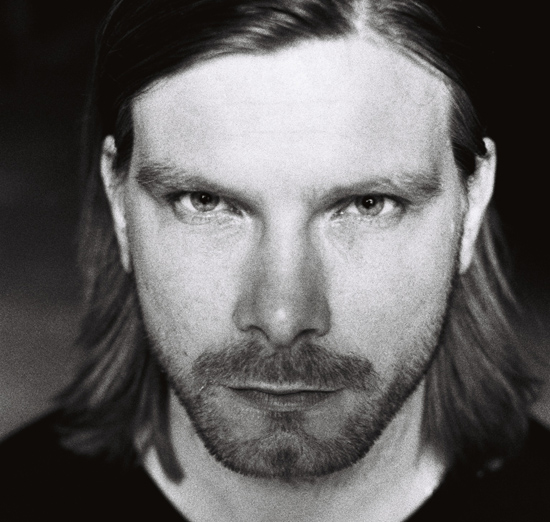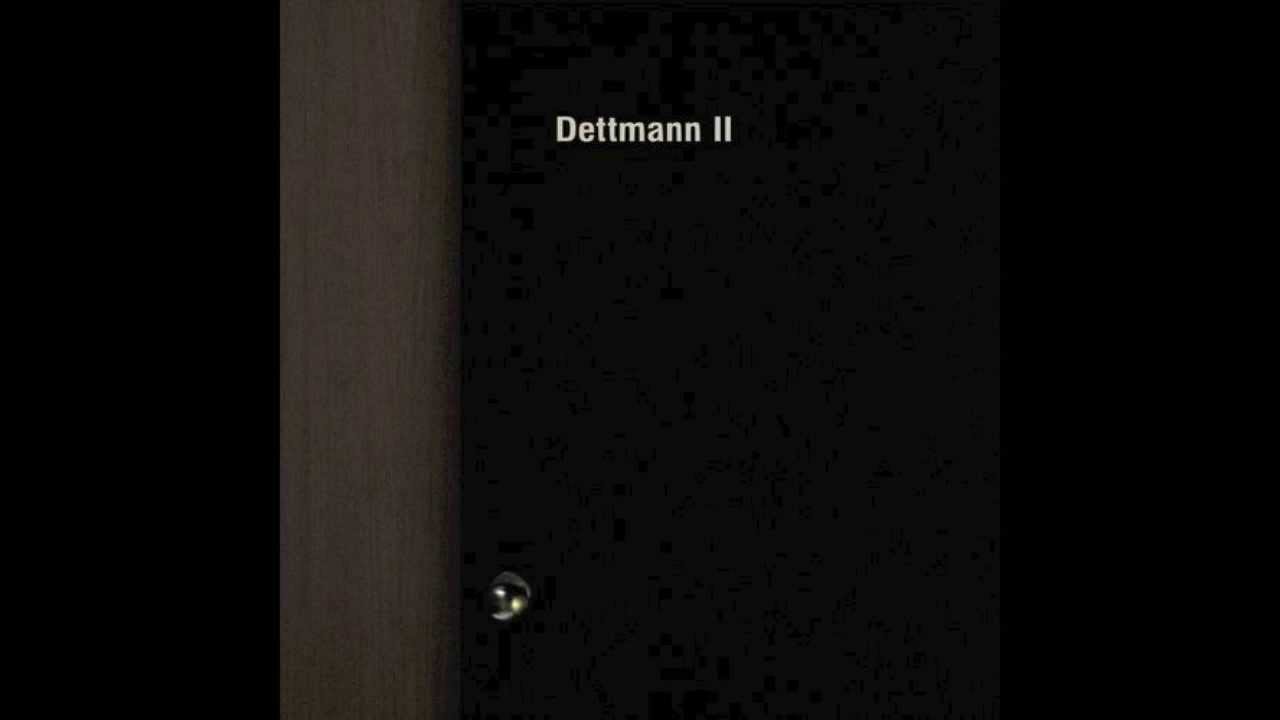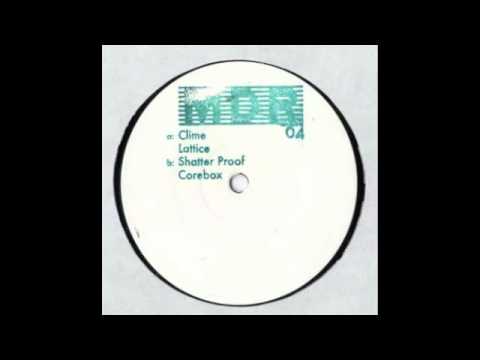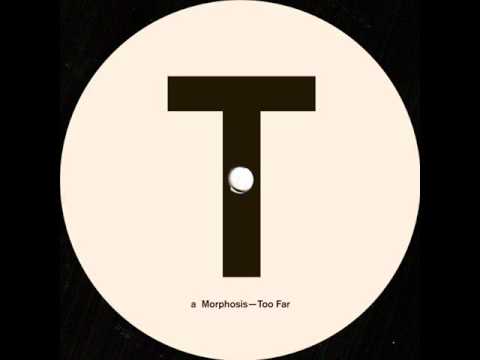Marcel Dettmann’s press kit begins with the words "Ruff, rugged, raw." This narrative is invaluable to the industry that has grown around the Berghain resident and techno artist over the last 15 years. It’s worth mentioning, if only to emphasise how little attention Dettmann pays to it himself. When talking about music he carries himself less like an ‘uber mensch’ techno hardman and more like an excitable teenager always on the verge of some new discovery.
"It’s the people [who] put me in a box," he says, with a shrug of his shoulders. He understands the world he’s working in, but refuses to play to people’s expectations. He attributes much of his success to his aptitude for listening. He can’t stress it enough. Iterations of the word find their way into many of his answers – listening routines, how he listened in the past, how he listens now, or listening while in the studio. It’s one quality that goes a long way to explaining the sheer depth of his DJ sets and also his second full-length album, Dettmann II, which he released on Ostgut Ton in September.
After two decades of DJing, his is a star that continues to burn as bright as any without any hint of extinguishing. He admits to loving the larger audience he’s accrued over the years, because it poses a challenge. The job, as he sees it, is to make people ‘curious’ about music. It’s hard to think of a more utilitarian mission statement for a DJ, but it’s for this very reason that Dettmann – and his Berghain/Ostgut colleagues – have remained so grounded despite the hysteria that’s grown around them. The Quietus sat down with Dettmann in Berlin around the time of his new album’s release to discuss the art of listening for new music, setting up his own home record store as a young man, and the pivotal role of the DJ.
So, five years on from your last substantial interview, and you’re a pop star.
Marcel Dettmann: [Laughs] Thanks. The thing is getting bigger.
Is the change something you feel, or something that you don’t really care about?
MD: Of course I feel it has changed, but the whole thing has grown step-by-step. I’m not someone who has a big hit. I’ve been DJing for 21 years, and then when I started playing Berghain I was 21. Now I’m 36. Throughout this time I’ve always liked to feel like the underdog, playing crazy music that people don’t know. Sometimes people try to find the tracks I play but they can’t get them because they’re not all on Shazam. [laughs] And even after this long career I still have my roots – like Hardwax, or Berghain or Berlin, the city – which are very strong. I’m still Marcel Dettmann. It’s really important to be rooted to where I come from. And also, I’m a DJ. I love music. I never think in boxes. I never see myself as a house or techno DJ. Or a pop star. [laughs]
‘Lightworks’, taken from the Dettmann II album
That’s why I find this, ‘sound of Berghain’ thing amusing especially because it’s something that’s projected from outside.
MD: What is the ‘sound of Berghain’?
Well, it’s just another box, right?
MD: I do also think it’s important for people to have these boxes. I used to have this when I was younger. It’s how I discovered music. People need to have these kind of boxes to be able to sort [through] things like labels, DJs, cities and music styles. And my job is to surprise them all the time. That keeps me alive in this business. This keeps me alive while I’m DJing. I’m not a DJ who plays what the people expect from me. In Ibiza I played on the beach and then I play in a small basement club in south Germany, and it’s different. But I don’t change the music I play. It depends on the mood. This keeps me alive. Otherwise it’s the toughest job on Earth. It’s the same when I produce music. In the end it sounds like me, but on the other hand it’s diverse, I would say.
Generally when industries grow from the underground they get diluted. Berghain has been quite successful in resisting this, especially when it comes to programming music.
MD: I think you have to give the people [and audiences] a chance. When you’re 16 or 17 or something you can’t go in clubs, you just see what happens on TV. So many people think that techno is Justice or David Guetta. When they enter Berghain they say, ‘Ah, that’s interesting, I’ve never heard this before – who’s that guy?’ It was the same for me – when I started listening to techno it was really cheesy compilations in 1992. Trance compilations, like Logic Trance Vol. 1. There was just one track that I liked, but I was curious for more. That’s the reason why festivals are so important – to make people curious. This is why Ibiza is a great challenge for me.
Do you think Ritchie Hawtin is an example of someone whose legacy and work has been diluted by his current popularity?
MD: I still think Richie is a visionary. He continues to try and push things. Take Enter in Ibiza for example – it’s amazing, the whole concept. He’s in this position to bring underground artists to Ibiza for a party because he is famous. I really like that, it’s always an amazing line-up. And everything he did in the past, like Minus, +8, the Fuse project, Plastikman – it’s also magic.
Let’s talk about Dettmann II.
MD: Dettmann II began when I made one track which became the fix point. Then I really felt like embracing the challenge of doing another album. And then I got the offer from my friends, Modeselektor, to use their studio, and I think I spent half a year making tracks. For me, making tracks takes time, but it’s mostly listening to the stuff. Listening and editing and experimenting with sounds.
Why was the offer of Modeselektor’s studio so crucial?
MD: I have a home studio, but this time I needed to go somewhere to work, to concentrate, to lie down on the couch listening, thinking and editing. I’ve always produced at home, but now I’m a father, and if I leave my home studio and I see my little daughter playing then I’m out of the game, because I want to play with her. That’s the reason why I said, ‘I need to go somewhere to focus’.
What’s the album format for you? Artists like Dozzy, Sigha, Shed, Peter van Hoesen, Mike Parker, Shifted – they all interpret the ‘album’ differently. How does Dettmann interpret it?
MD: I’m a DJ. It’s the same when I work on an album, I select the tracks like I would for a DJ set. Maybe it’s just deep in my mind. The album and DJ set both build in a way. I listen this way all the time, and I say, ‘This track on first, this one on last, this one in the middle’ – like I choose records while I play. In this way I think it’s a different thing if a DJ makes an album or a producer makes an album. It’s still my music. It’s a part of my life – just half a year maybe – but still a part of my life. That’s the reason I called it Dettmann II, it’s a soundtrack to this time in my life. After I finished the album, after half a year listening to the tracks, I felt in a hole. Like, ‘Oh shit, I don’t like it anymore’. Now I’m really relaxed and fine. All my friends are the same. It’s normal for an artist. You feel naked.
If this album is so personal how do you handle collaborating with Shed and Levon Vincent? How do you hand over control?
MD: The thing is Shed and Levon are really close friends of mine. Shed and I did a project together called Deuce. For me he’s the best techno producer – he’s always diverse and you know it’s Shed, it’s amazing. ‘Aim’ is a track were working on together back in the days. I found it in my library and asked René [Pawlowitz, Shed] if it would be ok that I keep working on the track to use it on my album. It was the same with Levon on ‘Outback’.
So it’s an old, unreleased DJ tool?
MD: Yeah, it’s maybe two years old. Like I already said, I kept working on it and made a new version. And then, Levon, it was the same. We did some tracks but they were never released. We actually want to do an EP together as well. I’m a really big fan of his stuff. Some people say, ‘If Marcel grew up in New York, he would sound like Levon Vincent, and vice versa’. He lives in Berlin, too. We met a couple of times in each other’s studios working on some tracks and listening to one [‘Outback’] I thought, ‘Wow it’s a really nice.’ I asked him if I could put it on the album, same as with Shed.
I imagine Ostgut would have been on board right from the start?
MD: It’s my mother label, it’s where I come from. I’m the oldest resident there. There was no other option to do anything else. It doesn’t make sense to do it on my own label. My own label [Marcel Dettmann Records] is more for my friends. I’m more like an A&R on my label, I release tracks that I really love. In an album there’s so much work and so much energy, so you want to get a bigger audience for it. MDR’s not the right spot for doing an album, so I never thought about it. Of course I would do it for Ostgut. It’s a really good label, it’s my home, I always come back home. Sometimes I travel but then I come home. [laughs]
‘Corebox’
What’s the A&R process for MDR?
MD: I get so many demos. People say, ‘Maybe you’ll like it because it sounds like you’. Whoah, so boring. I want to have something like Norman, or Wincent Kunth or Answer Code Request. And now Anthony Parasole – we’ve known each other for nearly 10 years or something. The first time I played in the States I didn’t have a work visa, so I couldn’t bring my records. I just had some CDs with me. And he showed me his whole record collection and told me, ‘Just grab what you want’, so I just played with his records. That’s the way we made friends. [I picked] maybe 150-200 records, I played the whole night. It was really amazing. It was my first time in New York, at the Bunker.
[On MDR] we have a new EP by Wincent Kunth coming out. I also want to do a compilation for the tenth release, with the main artists and some friends. And then there is something coming up, it’s the James Ruskin remix. He did three remixes of a track of mine because we had this exchange thing. I gave him two remixes for one track and he gave me three remixes for one track. We didn’t do fees. We’re just big fans of each other, let’s just exchange. I’m really happy, because one track is a really great one.
‘Corebox’?
MD: Yeah. It’s really massive, banging stuff, with the melody. It reminds me actually of a club here in Berlin called E-Werk back in the 90s. The kind of sound structure. Also it’s perfect at Berghain, it’s epic, everyone freaks out when they hear it. Ruskin is one of the best techno producers, I really love him. Since the 90s he has been amazing. I have almost every record he made. I’m a big fan. All the guys on MDR have their own style and that’s really important to me. It’s easy to copy a track you like, but there’s no soul. To me it’s boring. It’s not about [necessarily picking] a club track – it’s a feeling I have, it could be a hip hop track, a house track, whatever. I got a new track from Kobosil actually. He’s really young and has really good vibes in his music. He has this metallic, industrial stuff, but I try to filter these tracks and get the special ones. And I got really good stuff actually. It’s more like early Detroit and ambient stuff. More atmospheric stuff, not like pushy rhythm tracks.
Where’d you come across Kobosil?
MD: He had a job at Ostgut, just for a little while. He gave me his music.
Ostgut/Berghain has a way of attracting/finding/knowing unknown talent. Answer Code Request is another one that’s come up this way.
MD: He’s a really close friend of mine. I’m really happy now that he’s a resident at Berghain and making really good tracks.
I saw him play last weekend and I wondered, ‘Where has this guy been for the last decade, while the rest of you take all the gigs for yourself?’
MD: [Laughs] Yeah, he was down in the woods somewhere. I remember, when I had parties in my own home town – like 1994, 1995 – he was a young boy and he would come to our parties and check what we were playing. I know him from these days. And then he moved to Berlin and we met every so often. We had coffee together four or five years ago, and at some point he gave me music and I said, ‘Wow cool, nice’. He gave me nearly 50 tracks. And then we said, ‘OK this one is nice, and this one’. And then he worked on them and I was really happy. It was great that he finished his two 12"s on MDR.
There is this sense that the success you – and the other Ostgut guys – have had has been very long and slow.
MD: I never bought new clothes when I was younger. I spent everything I had just to get records. I built my own record store in my room just to bring the records to my hometown, to my friends and to build my own record collection.
Tell me about this DIY record store.
MD: I was buying from distributors in Germany in 1993 till 1997. My mother gave me some money for that, and I built a wall full of records in my bedroom. Norman [Nodge] or Marcel Fengler or Answer Code Request, they lived in my area, [and] they would come to get records from my room. A little Hardwax. During that time I built my record collection. We didn’t have Beatport or iTunes.
Do you see this as a problem?
MD: It’s not a problem, it’s just another time. It’s nice to have an iPhone, it’s nice to have a iPad and it’s nice to have a laptop and it’s nice to be on the Internet the whole day talking to your friends and getting everything, but you can’t get everything. It’s hard to focus on one thing, because there’s something else you want to focus on and then people get crazy. They’re thinking, ‘Oh shit, I missed something, I have to get everything’. And that’s maybe the biggest problem. People in the club standing in front of you recording for 20 minutes, and when it’s done they start making a new recording. So why did they even come to the club? Just to record my set? What? Go there, enjoy the night, talk to a nice girl, whatever. But maybe this is one point that makes the Berghain so special. The people have their phones but they’re not focused on them the whole time. Pictures are forbidden. I miss that sometimes, because I’m the same. When I’m in the cab I sit on the phone and [taps imaginary screen]. ‘I have to answer, I have to check this’. Pfft. Crazy. Just remember, the only person you have to call is your mother.
Morphosis – ‘Too Far (Marcel Dettmann remix)’
Do you dig for records anymore?
MD: Actually, today is my music day. I have 50 records at home. I just came here to have lunch and do this interview. That’s what I always try to do once a week. Sometimes I get the records and I check the YouTube files, but it’s a different thing when you’re listening to a record and listening to a WAV file. For me it’s really important to find a B2 track [a track tucked away on the second side of a record], this special one where people come up and say, ‘What’s that one?!’ That’s the main goal. There are so many ways to discover music. You could discover music if you read the newspaper. I bought the new David Lynch album just because I saw a poster somewhere and I thought, ‘Wow, he did a new album’ and I just bought it, not having listened to it. And it’s really nice.
As we agreed earlier, it’s not about boxes, right? You can discover that feeling in any music. What are the other sorts of music that inspire this feeling for you?
MD: When I’m listening to old post-punk, EBM or industrial stuff I’m always thinking, ‘Well that’s the reason that I’m into techno’. That’s pre-techno. They did it 25 years ago. For example, Nitzer Ebb or Front 242, or Deutsch Amerikanische Freundschaft [DAF], that’s amazing. Klein Inc. Wow, amazing. It was more of a political statement. I don’t think techno is really political. Post-punk and EBM gave a shit. They wanted to make people go crazy. DAF’s lyrics: ‘Tanz den Adolf Hitler’ [‘Dance the Adolf Hitler’]. And everybody gasps, "Oh my God," especially in Germany. "You can’t say that". I put Cabaret Voltaire, or Throbbing Gristle in the same group. I remember the first time I heard Throbbing Gristle, I was like, ‘What’s that? It’s strange’. I didn’t get it. It’s the same when I listened to Kraftwerk when I was young, I was saying, "What’s that?" [laughs]
But there’s always something that draws you back for repeat listens?
MD: That’s what I always say – that’s why I take so much time listening to music, because otherwise you don’t hear the main track of an EP. If it’s B1, B2, A1, A2. Or maybe the hidden track on the album, you don’t get it if you just focus on dance tracks. When you find this ‘hidden track’ you want to play it. Sometimes when I discover one tune, just one tune, I go into the weekend feeling like a little boy getting a new toy, going crazy. Just because of one track.
Marcel Dettmann’s Dettmann II is out now via Ostgut Ton





